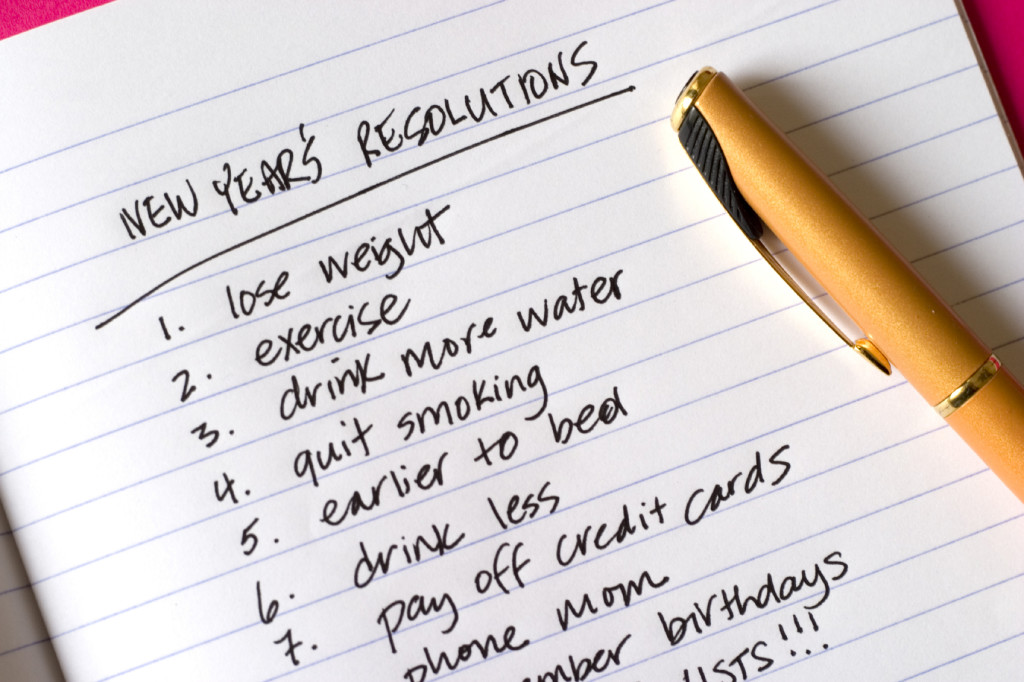If your list of resolutions ends up falling my the wayside after the first month, maybe the problem is not you, but with your system. Stephen Russell, aka, The Barefoot Doctor, has some advice on how to make resolutions stick.
As someone reading this magazine, hence with the good sense to be interested in, or already exploring the world of NLP. For that reason, you’re probably not one of those silly people who wastes energy and time each year making resolutions to give up this or take up that. This often results in people letting themselves down and subsequently punishing themselves and so reinforce the web of self-obfuscation Freud termed our ‘ego-defenses’.
Instead I’d imagine you’ve already sussed a more elegant, streamlined way of managing your psycho-behavioral patterns. I doubt I’ll be telling you anything you don’t know here, but maybe just reflecting it back to you from a different angle. I’ve devoted my life to demystifying and translating the Taoist sages of ancient China, who were masters of the human condition. They had a wry and radical angle worth preserving that can be helpful, especially when managing the self-destructive urges of what Freud called the ‘id’. The id is the primal swirl of conflicting drives in the unconscious, at odds with what we normally think of as common sense.
Take giving up alcohol, for instance. Or any sort of acting out that threatens to sabotage your successful progress along life’s thoroughfare – excessive shopping, gratuitous sex, narcissistic obsession, obsession with others and so on.
Matter, everything manifest, including all of nature, exists by resisting the subatomic energy field, and thus comprising a glitch. In our case we then maintain our ‘shape’ through a process of complex addiction. We addict ourselves to our concepts, beliefs, opinions, prejudices, fears, hopes, perceived inadequacies; to our self-image, our homes, our relationships, our possessions, our social status, entertainments, and to life itself. We’re also capable of addicting ourselves to pursuits and activities that enhance. We’re also capable of addicting ourselves to pursuits and activities that enhance heal, strengthen, purify, refine and develop us.
These invariably comprise the regular undertaking of various sets of steps, whether internal ones as in the case of meditation or mental reframe practice, for instance, or external ones as in the case of physical movement, such as martial arts or yoga practice. Or a combination of both internal and external steps, as happens when doing any physical moves mindfully.
For this addiction to take hold takes a bit of time and repetition, in exactly the same way it takes a bit of time and repetition to get hooked on the destructive habits – even heroin addicts don’t get addicted from the first puff or jab. For this to apply to a positive addiction requires willingness to regularly undertake the daily practice. Then you need to get the part of you that rebels and resists to agree and play along, at least for a trial period. The old Taoists suggested 90 days for this, as it’s enough of a span to see and evaluate the results sensibly.
It doesn’t matter what the practice is, as long as it involves something you do for at least a few minutes each day. Just enough time to truly make contact with your deeper self in a visceral, physical, palpable way. In meeting with yourself, reinforce all that’s strong, noble and beautiful about you.
This builds up a focused stream of self-affirming force, which in turn grants you far more command over the rebellious aspects of you: that inner beast.
As time goes on, if the intention’s there, you’ll develop a loving trainer-like approach to the inner beast, and you’ll get the hang of how to coach it. You will show it your desire to develop a magnificent internal ecosphere that will be to its liking, as much as yours, and you reward it for its cooperation by feeding it every now and then. So if it wants to go a bit wild occasionally, you let it, but you do it consciously and mindfully, rather than in denial. While it’s true your body is your temple, it’s your nightclub too.
Keep on doing that daily practice of your choice, regardless. Some days you get a high some days you don’t, but you do the practice anyway. Gradually the effects feel so good, you want to spend more time enjoying them, which leaves less time for the others.
And that’s how you do it. It’s not ideal. Nothing is. But it’s an angle, one I’m sure you’ll be able to add to inventively in your own way. At its root lies self-respect: treating yourself as a worthy leader who knows what they’re doing, even if sometimes they do swing things a bit to the wild side.
Synopsis: Taoism, China, Chakra, New Year’s resolution, habit, good habits, alcohol, nightclub, exercise




